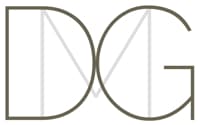 There must be something in the air.
There must be something in the air.
Several times this week I’ve paused in the middle of teaching to interrupt a student’s spiral of self-deprecation and frustration. The spiral is easy to recognize, either by the words that accompany it— “This doesn’t sound right.” … “That note is so high!” … “Why can’t I get this?” —or, once you know what to look for, by the slow-blinking, eyes-downcast head shake and shoulder slump. It’s unmistakeable body language: “I’m not good enough.”
There’s a running joke in my field that music lessons tend to be 10% technique and 90% therapy. And while it is a joke—I’m a vocal supporter of the mental health industry and believe everyone can benefit from working periodically with an excellent professional talk therapist—I know that among the lessons I’ve learned from my own therapist are several that I share often with my students:
- that every
artisthealthy human being struggles with self-doubt, - that finding (and trusting) voices that recognize and appreciate our inherent worth is one of the most important (and most difficult) things we can do as
artistshumans, and - that I, in my role as an authority figure in their artistic lives, am (I hope!) one of those supportive voices.
So pianist Herbie Hancock’s anecdote about a botched chord in a gig with trumpeter Miles Davis has been on my mind a lot this week. If you’ve hit a wrong note or two in your own life recently, maybe you’ll find this story moving too. Click “play” on the video below to hear Hancock tell it for himself. It’s worth the 90 seconds.
In the meantime, namasté, my friends. The Divine in me acknowledges the Divine in you. Can you see it too?
